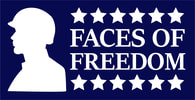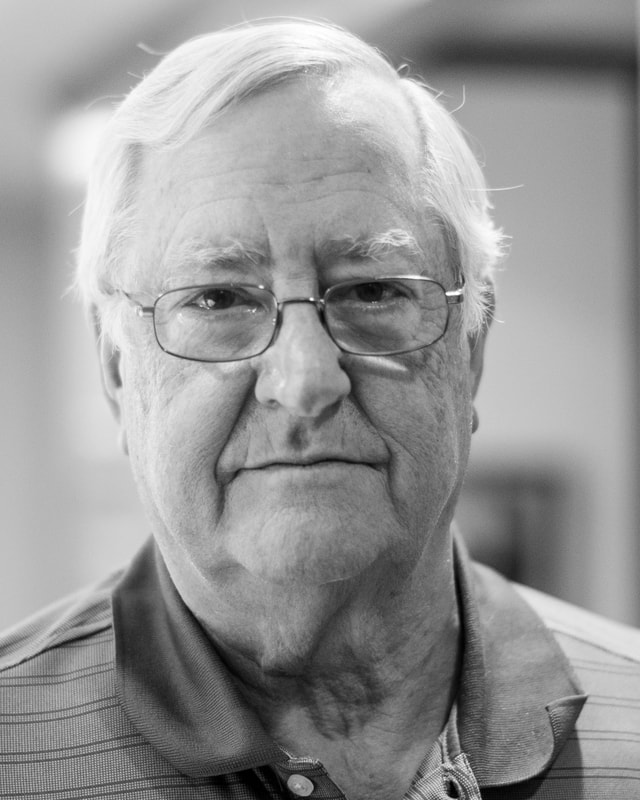1st LT C. Anthony Bougere
US Army
41st Signal Battalion
Qui Nhon, Vietnam May ’69 – June ‘70
US Army
41st Signal Battalion
Qui Nhon, Vietnam May ’69 – June ‘70
Tony Bougere was born in Manhattan in 1945. He and his three sisters later moved to Brooklyn and then to Holyoke, Massachusetts in 1950. Tony graduated from Holyoke High School in 1962 and then went on to graduate from Trinity College in Hartford, CT while his three sisters all graduated from Mt. Holyoke College. US involvement in Vietnam was steadily increasing in 1967 when Tony graduated from Trinity. He had a brother-in-law that was a career military officer, and he felt an obligation to serve his country. Tony wanted to be an officer and knew that if he enlisted, he would have more control over his destiny than if he was drafted. Tony decided to enlist and recalls his parents being supportive. But before he left for basic training, he got engaged to his future wife Betsy.
He attended basic training at Fort Dix and was named the outstanding trainee in his basic training class. Tony attended Advanced Infantry Training at Fort Dix and then Infantry OCS at Ft. Benning in Georgia. He was then assigned to the Signal Corp. which handled the various communication needs of the military and received training in communications at Ft. Gordon in Georgia and Ft. Sill in Oklahoma. Tony received orders to go to Vietnam and flew from Travis AFB in California to Okinawa, Japan and then on to Tan Son Nhut AFB in Da Nang Vietnam. While in Da Nang waiting for his assignment, Tony was reading an article in Life Magazine, titled The Weeks Dead. The article listed all of the US military members that died in the past week and Tony saw Dick Patterson, a friend from basic training and OCS. Now the war was real.
Tony’s unit was sent to a US military compound in Phu Tai which is just west of the coastal city of Qui Nhon. The base at Phu Tai was surrounded by fence and filled with sandbags and unlike many other US bases in Vietnam, Tony does not recall ever being attacked.
The 41st Signal Battalion was assigned to support the soldiers from the Republic of Korea (South Korean Army). Tony recalled “they were our allies, and they were vicious fighters”. “Things didn’t happen during the day. Everything happened at night”. The Koreans would establish an outpost and the VC would attack it at night and destroy the communications, among other things. Tony and his unit would chopper out to the outpost during the day and fix the communications and then go back to Phu Tai. Tony felt relatively safe most of the time he was in Vietnam. “We never left the base except to go to the Korean outposts or to Battalion HQ”.
Tony recalled there was a significant drug problem on the base, particularly with marijuana. He also recalled that they received very little information about what was going on in the world. He was unaware of the anti-war protests and turmoil, and they knew nothing about the Apollo moon landing. I asked if he ever had a sense of whether the US was winning the war. He said no, “you were so caught up in what you were doing you lost sight of the big picture”. I asked Tony if there was anything that stuck with him about his time in the service and he said, “you have a sense of not having control over circumstances and just hope you are going to be safe”.
At the end of his time in-country he became an Adjunct to a colonel and his job was to “do whatever the colonel wanted done”. When it came time to leave Tony flew from Vietnam to Ft Lewis in Washington and then jumped on a commercial airline flight to Bradley Airport in Connecticut. Tony recalled the time between when he left Phu Tai to when he walked in his front door was two days. Fortunately for Tony he was not coming from a unit that was in combat. Two days is not much of a decompression and adjustment period. He was also very fortunate in that he did not receive an anti-war reception or experience any negative treatment from the war protestors.
Tony arrived back in the US in June, was married in July and headed to Columbia University to get his Graduate Business Degree. From there he went on to make a career at Compton Advertising in New York City and then Heublein in Hartford, CT. Tony and Betsy have been married for 51 years and have a son and a daughter.
I asked Tony what he thought of his time in the military. He said he was glad he served, and he felt like he “gave a little back”. He said that at the time “you really felt like you were doing something good. But after the fact you wonder why we were really there”.
Thank you Tony for sacrificing two years of your life to serve your country in very difficult conditions and experiencing things the rest of us will never be able to fully understand.
He attended basic training at Fort Dix and was named the outstanding trainee in his basic training class. Tony attended Advanced Infantry Training at Fort Dix and then Infantry OCS at Ft. Benning in Georgia. He was then assigned to the Signal Corp. which handled the various communication needs of the military and received training in communications at Ft. Gordon in Georgia and Ft. Sill in Oklahoma. Tony received orders to go to Vietnam and flew from Travis AFB in California to Okinawa, Japan and then on to Tan Son Nhut AFB in Da Nang Vietnam. While in Da Nang waiting for his assignment, Tony was reading an article in Life Magazine, titled The Weeks Dead. The article listed all of the US military members that died in the past week and Tony saw Dick Patterson, a friend from basic training and OCS. Now the war was real.
Tony’s unit was sent to a US military compound in Phu Tai which is just west of the coastal city of Qui Nhon. The base at Phu Tai was surrounded by fence and filled with sandbags and unlike many other US bases in Vietnam, Tony does not recall ever being attacked.
The 41st Signal Battalion was assigned to support the soldiers from the Republic of Korea (South Korean Army). Tony recalled “they were our allies, and they were vicious fighters”. “Things didn’t happen during the day. Everything happened at night”. The Koreans would establish an outpost and the VC would attack it at night and destroy the communications, among other things. Tony and his unit would chopper out to the outpost during the day and fix the communications and then go back to Phu Tai. Tony felt relatively safe most of the time he was in Vietnam. “We never left the base except to go to the Korean outposts or to Battalion HQ”.
Tony recalled there was a significant drug problem on the base, particularly with marijuana. He also recalled that they received very little information about what was going on in the world. He was unaware of the anti-war protests and turmoil, and they knew nothing about the Apollo moon landing. I asked if he ever had a sense of whether the US was winning the war. He said no, “you were so caught up in what you were doing you lost sight of the big picture”. I asked Tony if there was anything that stuck with him about his time in the service and he said, “you have a sense of not having control over circumstances and just hope you are going to be safe”.
At the end of his time in-country he became an Adjunct to a colonel and his job was to “do whatever the colonel wanted done”. When it came time to leave Tony flew from Vietnam to Ft Lewis in Washington and then jumped on a commercial airline flight to Bradley Airport in Connecticut. Tony recalled the time between when he left Phu Tai to when he walked in his front door was two days. Fortunately for Tony he was not coming from a unit that was in combat. Two days is not much of a decompression and adjustment period. He was also very fortunate in that he did not receive an anti-war reception or experience any negative treatment from the war protestors.
Tony arrived back in the US in June, was married in July and headed to Columbia University to get his Graduate Business Degree. From there he went on to make a career at Compton Advertising in New York City and then Heublein in Hartford, CT. Tony and Betsy have been married for 51 years and have a son and a daughter.
I asked Tony what he thought of his time in the military. He said he was glad he served, and he felt like he “gave a little back”. He said that at the time “you really felt like you were doing something good. But after the fact you wonder why we were really there”.
Thank you Tony for sacrificing two years of your life to serve your country in very difficult conditions and experiencing things the rest of us will never be able to fully understand.

